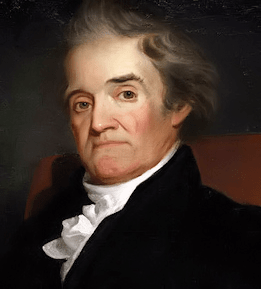Textus Receptus Bibles
Noah Webster's Bible 1833
| 2:1 | My little children, these things I write to you, that ye sin not. And if any man sinneth, we have an advocate with the Father, Jesus Christ the righteous: |
| 2:2 | And he is the propitiation for our sins: and not for ours only, but also for the sins of the whole world. |
| 2:3 | And by this we do know that we know him, if we keep his commandments. |
| 2:4 | He that saith, I know him, and keepeth not his commandments, is a liar, and the truth is not in him. |
| 2:5 | But whoever keepeth his word, in him verily is the love of God perfected: by this we know that we are in him. |
| 2:6 | He that saith he abideth in him, ought himself also so to walk, even as he walked. |
| 2:7 | Brethren, I write no new commandment to you, but an old commandment which ye had from the beginning: The old commandment is the word which ye have heard from the beginning. |
| 2:8 | Again, a new commandment I write to you, which thing is true in him and in you: because the darkness is past, and the true light now shineth. |
| 2:9 | He that saith he is in the light, and hateth his brother, is in darkness even until now. |
| 2:10 | He that loveth his brother abideth in the light, and there is no occasion of stumbling in him. |
| 2:11 | But he that hateth his brother is in darkness, and walketh in darkness, and knoweth not whither he goeth, because darkness hath blinded his eyes. |
| 2:12 | I write to you, little children, because your sins are forgiven you for his name's sake. |
| 2:13 | I write to you, fathers, because ye have known him that is from the beginning. I write to you, young men, because ye have overcome the wicked one. I write to you, little children, because ye have known the Father. |
| 2:14 | I have written to you, fathers, because ye have known him that is from the beginning. I have written to you, young men, because ye are strong, and the word of God abideth in you, and ye have overcome the wicked one. |
| 2:15 | Love not the world, neither the things that are in the world. If any man loveth the world, the love of the Father is not in him. |
| 2:16 | For all that is in the world, the lust of the flesh, and the lust of the eyes, and the pride of life, is not from the Father, but is from the world. |
| 2:17 | And the world passeth away, and the lust of it: but he that doeth the will of God abideth for ever. |
| 2:18 | Little children, it is the last time: and as ye have heard that antichrist cometh, even now are there many antichrists; by which we know that it is the last time. |
| 2:19 | They went out from us, but they were not of us; for if they had been of us, they would no doubt have continued with us: but they went out, that they might be made manifest that they were not all of us. |
| 2:20 | But ye have an unction from the Holy One, and ye know all things. |
| 2:21 | I have not written to you because ye know not the truth, but because ye know it, and that no lie is of the truth. |
| 2:22 | Who is a liar but he that denieth that Jesus is the Christ? He is antichrist, that denieth the Father and the Son. |
| 2:23 | Whoever denieth the Son, the same hath not the Father: but he that acknowledgeth the Son hath the Father also. |
| 2:24 | Let that therefore abide in you, which ye have heard from the beginning. If that which ye have heard from the beginning shall remain in you, ye also shall continue in the Son, and in the Father. |
| 2:25 | And this is the promise that he hath promised us, even eternal life. |
| 2:26 | These things have I written to you concerning them that seduce you. |
| 2:27 | But the anointing which ye have received from him abideth in you, and ye need not that any man should teach you: but as the same anointing teacheth you concerning all things, and is truth, and is no lie, and even as it hath taught you, ye shall abide in him. |
| 2:28 | And now, little children, abide in him; that when he shall appear, we may have confidence, and not be ashamed before him at his coming. |
| 2:29 | If ye know that he is righteous ye know that every one that doeth righteousness is born of him. |

Noah Webster's Bible 1833
While Noah Webster, just a few years after producing his famous Dictionary of the English Language, produced his own modern translation of the English Bible in 1833; the public remained too loyal to the King James Version for Webster’s version to have much impact.